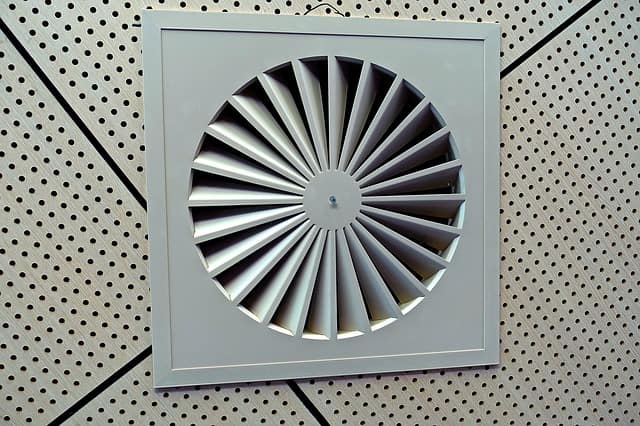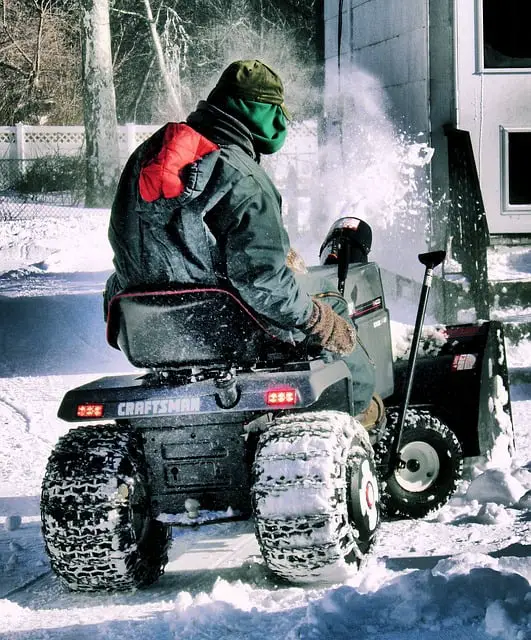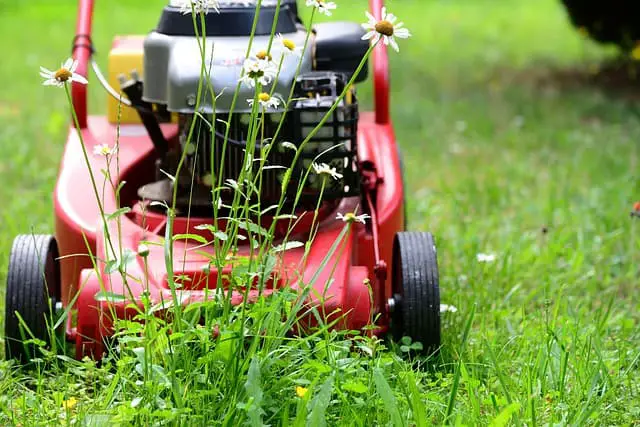When you need to repair a snow blower, it could cost anywhere between $60 and $200 or more. The cost of damage will depend on what type of snow blower you own and what damage has been done. Every problem will have a different cost to cover.
If it’s your first season using a snow blower, you may be wondering what type of costs you might come across. On this page, we’re going to discuss how much it may cost to fix a snow blower and everything else you needed to know about maintaining a snow blower. Keep reading to find out more.
What is the average cost for getting a snow blower fixed?
The average cost for getting a snow blower fixed depends on what type of snow blower you have. A single stage snow blower is typically between $60 and $120 for general maintenance, while a dual stage is usually between $80 and $200.
Keep in mind that these prices reflect the estimate for a tuneup. If the damage requires advanced repairs or new parts, the costs will be higher.
What is the hourly rate for snow blower repairs?
The hourly rate for snow blower repairs depends heavily on the experience of the technician and what repair shop you visit. The average rate for an experienced technician is around $65 an hour, but this could be more or less in different locations.
Keep in mind that you will likely pay more than just the hourly rate. Most repair shops will also charge a diagnostics fee which often ranges between $30 and $40.
Do you still have to cover the charge of a diagnostics fee if you don’t have the snow blower repaired?
It’s important to take your snow blower to a repair service that you trust because you will be responsible for covering the diagnostic fee regardless of whether you have the unit repaired or not. A trusted repair service will not leave you with a bad diagnostics reading.
How often should a snow blower be serviced?
A good rule of thumb is to have your snow blower serviced after 50 hours of use, with oil changes being performed after 5 hours of use. This will keep your snow blower in better shape and help to prolong its lifespan.
Regular servicing and maintenance are important to maintain the condition of your snow blower. This helps to limit the chances of needing repairs in the future.
How many years will a snow blower last?
There are a few things that determine how long a snow blower will last. The main factors are if you have kept up with regular maintenance and the quality of the machine.
A cheap snow blower should last for an average of 10 years if it’s properly maintained. However, a better quality snow blower should have a lifespan of 15 to 25 years if kept in good shape.
What should you examine to ensure that your snow blower is ready for winter season?
Before you start using your snow blower for the season, there are a few things that you need to check. If there is any old fuel from last season, it should be replaced.
You should also ensure that the belts and spark plug are in good condition. It’s also important to change the engine oil in the snow thrower so it operates smoothly.
Will the gas in a snow blower go bad?
If there is gas in your snow blower from last season, you should always empty it before starting the snow blower or adding new fuel. After 30 days, gas in the tank will lose its volatility and no longer be good to use.
Using stale gas could cause problems with your snow blower, like engine knocking and sputtering. To avoid a costly repair, always use fresh gas.
Why is my snow blower not turning on?
In order for a snow blower to turn on, it needs to have gas, compression, and a spark. If the unit is not turning on, you should look for a problem with one of these three things.
One of the main culprits for causing a snow blower not to start is using old gas because it forms gummy-like deposits. These deposits then clog the carburetor, which stops the snow blower from starting.
Will salt cause damage to a snow blower?
Road salt is often used to keep snow and icy patches under control during the winter. However, if your snow blower comes in contact with salt, it could lead to rust.
For this reason, it’s strongly recommended to rinse the snow blower off before storing it. It may be unavoidable to run into salt when using the snow blower, but you can get your machine safe by rinsing it.
Do snow blowers require a lot of maintenance?
The good thing about owning a snow blower is that it won’t take a lot of maintenance to stay in good condition. However, you will need to keep an eye on its parts to replace any that have worn out.
It’s also important to stay on top of regular oil changes and replace spark plugs as needed. This will help you to avoid costly repairs in the future.
Should you use lubricant on a snow blower?
At the beginning of the season, it’s important to use a lubricant on the snow blower. It’s recommended to use a non-stick spray on the snow blower.
The lubricant is important because it creates a protective shield for your snowblower. This prevents snow, dirt, grass, and other items from sticking to the machine.
What is the main reason for a snow blower to break down?
If your snow blower breaks down, there are a few reasons why this could happen. According to repair technicians, the two most common problems come from using old gas or allowing the snow blower’s parts to rust.
Another reason why a snow blower could break down is that the machine was still being used with damaged parts. Always service parts on the first sign of damage so they don’t lead to further problems.
Hi, I’m John Stephens, chief editor and writer for Totalgardener.com. I’ve been gardening and raising animals for over 15 years starting with a small backyard plot in Northern Virginia where I grew corn, potatoes, squash, and using a high mulch technique called the Ruth Stout Method. I also raised ducks and small mammals for meat and eggs in a movable pen similar to the ones used by Joel Salatin. I later moved to Colorado where I experimented with growing greens using aquaponics inside. I eventually added a microgreens setup and home sprouting operation. I’m excited to share everything I’ve learned plus more from the other local gardening and animal raising experts I know.



